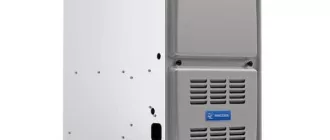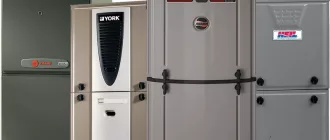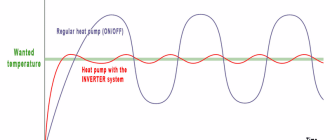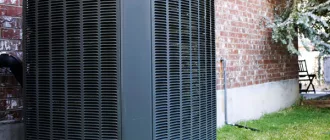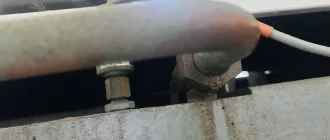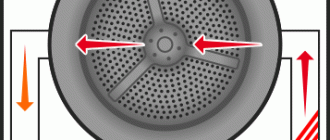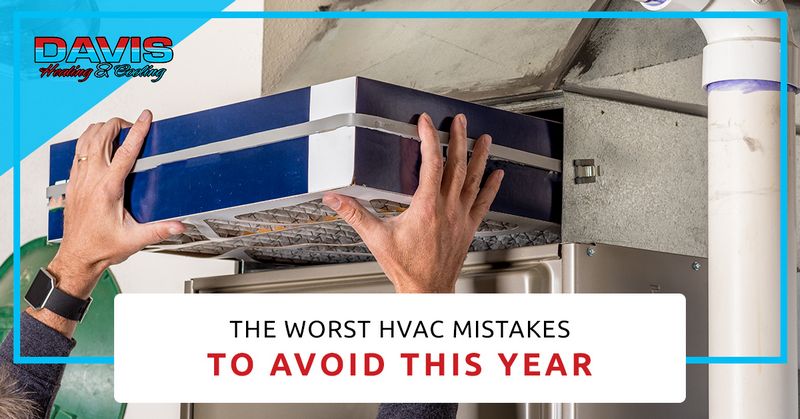
Common HVAC System Mistakes That Can Cause Damage: How to Avoid Them
Your HVAC system plays a crucial role in maintaining a comfortable and healthy living environment. However, many homeowners unknowingly make common mistakes that can lead to significant damage to their HVAC system. By avoiding these mistakes, you can ensure the longevity and efficiency of your HVAC system, saving you both time and money in the long run.
One common mistake that homeowners make is neglecting regular maintenance. Your HVAC system requires routine upkeep to operate at its best. This includes changing air filters, cleaning condenser coils, and scheduling professional inspections. Neglecting these tasks can lead to reduced efficiency and increased wear and tear on your system, resulting in higher energy bills and potential breakdowns.
Another mistake to avoid is blocking the airflow to your HVAC system. Many homeowners unintentionally obstruct the vents by placing furniture or objects in front of them. This can impede the proper circulation of air and strain your system, leading to decreased performance and potential damage. It is important to keep your vents clear and unobstructed to maintain optimal airflow throughout your home.
In addition, setting the thermostat at extreme temperatures can also have a negative impact on your HVAC system. Cranking up the heat or blasting the air conditioning may provide temporary relief, but it puts unnecessary stress on your system. Continuously running your HVAC system at extreme temperatures can cause it to overwork, resulting in increased energy consumption and potential damage to the components.
To avoid these common mistakes and ensure the longevity of your HVAC system, it is essential to invest in regular maintenance and follow proper usage guidelines. By doing so, you can enjoy a comfortable and efficient living space while also saving money on energy bills and costly repairs.
Neglecting Regular HVAC Maintenance
Avoiding regular maintenance for your HVAC system can lead to serious damage. Neglecting this important routine can result in your system not working efficiently, causing higher energy bills and reducing the lifespan of your HVAC equipment.
Regular maintenance is necessary to keep your HVAC system running smoothly and to catch any potential issues before they turn into major problems. By neglecting this maintenance, you are increasing the risk of damage to your system and the need for costly repairs.
Common problems that can occur from neglecting regular maintenance include clogged air filters, dirty coils, and worn-out belts. When these issues go unchecked, they can lead to reduced airflow, poor indoor air quality, and even complete system breakdown.
Regular HVAC maintenance includes tasks such as changing air filters, cleaning coils, lubricating moving parts, and inspecting electrical connections. By performing these tasks regularly, you can ensure that your HVAC system is running efficiently and effectively, saving you money on energy bills and extending the life of your equipment.
To avoid the damage that comes from neglecting regular HVAC maintenance, it is recommended to schedule an annual service appointment with a qualified professional. They will be able to inspect and tune up your system, keeping it in top condition and preventing any potential issues.
Don’t make the common mistake of neglecting regular HVAC maintenance. Take care of your system to avoid damage, save money, and ensure a comfortable indoor environment for you and your family.
Ignoring Air Filter Replacement
One of the most common mistakes homeowners make is ignoring the regular replacement of their HVAC system’s air filter. The air filter plays a crucial role in maintaining the efficiency and performance of your HVAC system.
Why is air filter replacement important?
The air filter in your HVAC system helps to trap dust, dirt, pollen, and other particles in the air. Over time, these particles can accumulate and clog the filter, reducing its effectiveness. When the air filter becomes clogged, it can restrict airflow, causing your HVAC system to work harder to maintain the desired temperature. This can lead to increased energy consumption and higher utility bills.
Ignoring air filter replacement can also have a negative impact on the air quality in your home. A dirty filter allows pollutants to circulate throughout the house, which can be harmful, especially for people with allergies or respiratory issues.
How often should you replace your air filter?
The frequency of air filter replacement depends on various factors, such as the type of filter, the level of indoor pollution, and the number of occupants in your home. In general, it is recommended to replace the air filter every 1-3 months, or as specified by the manufacturer. However, if you have pets or live in an area with high levels of pollution, you may need to replace it more frequently.
How to avoid this mistake?
To avoid this common mistake, make sure to check your HVAC system’s air filter regularly and replace it as needed. It is a relatively inexpensive and easy task that can have a significant impact on your system’s performance and energy efficiency. Consider setting a reminder or mark your calendar to remind yourself of filter replacement dates.
Additionally, when replacing the air filter, make sure to use the correct size and type recommended by the manufacturer. Using the wrong filter can potentially cause damage to your HVAC system or reduce its efficiency.
By not ignoring air filter replacement, you can ensure that your HVAC system operates at its best, providing optimal comfort and indoor air quality for you and your family.
Blocking Vents and Air Returns
One of the most common mistakes that can damage your HVAC system is blocking vents and air returns. This can happen inadvertently when furniture, curtains, or other objects are placed over or in front of vents and air returns.
When a vent or air return is blocked, it restricts the flow of air into and out of the system. This can cause the HVAC system to work harder to maintain the desired temperature, leading to increased energy consumption and higher utility bills. Blocking vents and air returns can also lead to uneven heating and cooling throughout your home.
Furthermore, a blocked vent or air return can create pressure imbalances within the HVAC system. This can potentially damage the blower motor or other components, reducing the lifespan of your system and leading to costly repairs or premature replacement.
To avoid these problems, it is important to ensure that all vents and air returns in your home are kept clear and unobstructed. Regularly check and remove any objects that may be blocking the vents or air returns, and make sure that furniture is not placed directly in front of them.
If you find that certain vents or air returns are consistently blocked due to furniture placement, consider rearranging the layout of your room or using vent deflectors to direct air flow away from obstructions.
By avoiding the mistake of blocking vents and air returns, you can help maintain the efficiency and longevity of your HVAC system, while also ensuring consistent comfort throughout your home.
Setting the Thermostat Too High or Too Low
One common mistake that can damage your HVAC system is setting the thermostat too high or too low. Many people think that setting the thermostat to extreme temperatures will help cool or warm their home faster, but this is not the case. In fact, it can put unnecessary strain on your HVAC system and lead to increased energy consumption.
Setting the thermostat too high in the summer can cause your air conditioner to work harder than it needs to, leading to potential damage and a shorter lifespan. On the other hand, setting the thermostat too low in the winter can overwork your heating system and increase the risk of malfunctions or breakdowns.
To avoid these common mistakes, it’s important to set your thermostat to a comfortable temperature that doesn’t strain your HVAC system. The U.S. Department of Energy recommends setting your thermostat to 78°F (25°C) in the summer and 68°F (20°C) in the winter.
It’s also a good idea to use programmable thermostats that can automatically adjust the temperature when you’re not home. This can help save energy and prevent unnecessary wear and tear on your HVAC system.
By avoiding the mistake of setting your thermostat too high or too low, you can help protect your HVAC system and ensure it operates efficiently for years to come.
Overworking the HVAC System
One of the most common mistakes that people make is overworking their HVAC system. This can lead to significant damage and costly repairs in the long run. It’s important to avoid these mistakes to keep your HVAC system running smoothly.
One mistake that people often make is setting the thermostat too low or too high. When the temperature outside is extreme, it can put a strain on your system as it tries to maintain the desired temperature. This not only wastes energy but also puts unnecessary stress on the components of your HVAC system.
Another mistake is neglecting regular maintenance. HVAC systems require regular cleaning and servicing to function properly. Neglecting these tasks can lead to a buildup of dirt and debris, which can clog the system and reduce its efficiency. It’s important to schedule regular maintenance visits and change the air filters as recommended by the manufacturer.
Using the wrong size HVAC system for your home is also a common mistake. If your system is too small, it will have to work harder to cool or heat your home, leading to increased wear and tear. On the other hand, if your system is too large, it will cycle on and off frequently, which can result in unnecessary energy consumption and reduce the lifespan of your equipment.
Lastly, blocking the airflow in your HVAC system can cause serious damage. Make sure that your vents are not obstructed by furniture, curtains, or other objects. Blocked vents can disrupt the airflow and cause the system to work harder to maintain the desired temperature.
To avoid these common mistakes and prevent damage to your HVAC system, make sure to set the thermostat to a reasonable temperature, schedule regular maintenance, choose the right size system for your home, and keep the airflow unobstructed. By taking these simple steps, you can help extend the life of your HVAC system and avoid costly repairs.
Misusing Ceiling Fans
When it comes to your HVAC system, it’s important to avoid common mistakes that can cause damage. One such mistake is misusing ceiling fans. While they can be a great asset in keeping your home cool, using them incorrectly can actually decrease the efficiency of your HVAC system and cause unnecessary wear and tear.
Here are some common mistakes to avoid when using ceiling fans:
- Leaving fans on in empty rooms: It’s important to turn off ceiling fans when you leave a room. Fans cool people, not rooms, so leaving them on when no one is there is a waste of energy.
- Running fans at high speed all the time: Using your ceiling fan at high speed constantly can create a wind chill effect that may make the room feel cooler, but it won’t actually lower the temperature. This can cause your HVAC system to work harder and use more energy.
- Not adjusting fan direction for the season: Ceiling fans have a switch that allows you to change the direction of the blades. In the summer, the fan should rotate counterclockwise to create a breeze. In the winter, the fan should rotate clockwise to circulate warm air that rises to the ceiling.
- Using a ceiling fan as a substitute for air conditioning: While a ceiling fan can help make a room feel cooler, it doesn’t actually lower the temperature like an air conditioning system does. Relying solely on a ceiling fan in extremely hot conditions can put strain on your HVAC system and may not provide adequate cooling.
By avoiding these common mistakes and using ceiling fans properly, you can help maintain the efficiency of your HVAC system and prevent unnecessary damage or wear. Make sure to use ceiling fans as a supplement, not a substitute, to your air conditioning system, and always adjust the settings appropriately for the season and occupancy of the room.
Not Sealing Air Leaks
One common mistake that can damage your HVAC system is not sealing air leaks. Air leaks in your home can cause your HVAC system to work harder and less efficiently, leading to increased energy consumption and higher utility bills.
Air leaks can occur in various places throughout your home, including windows, doors, attics, and ductwork. When air leaks are present, the conditioned air from your HVAC system can escape, while unconditioned air from outside can enter your home.
To avoid this problem, it is important to identify and seal air leaks in your home. You can use weatherstripping or caulk to seal gaps and cracks around windows and doors. Insulating your attic and walls properly can also help prevent air leaks.
| Avoiding Mistake | Damage |
| Not sealing air leaks | Reduced efficiency, increased energy consumption, higher utility bills |
Regularly inspecting your ductwork for leaks and sealing them with duct tape or mastic can also help prevent air leaks and ensure that your HVAC system functions optimally.
By sealing air leaks in your home, you can improve the efficiency of your HVAC system, reduce energy waste, and save money on your utility bills.
Blocking the Outdoor Unit
One of the most common mistakes that can cause significant damage to your HVAC system is blocking the outdoor unit. The outdoor unit, also known as the condenser unit, plays a crucial role in the cooling process. It houses important components such as the compressor and condenser coils.
However, many homeowners unknowingly block the outdoor unit, hindering its ability to perform efficiently. It’s important to keep the area around the outdoor unit clear of debris, plants, and other obstructions. Blocking the outdoor unit can restrict airflow, causing the system to work harder and potentially leading to overheating.
To avoid this mistake, make sure to regularly inspect the area around the outdoor unit and remove any leaves, grass clippings, or other debris. Trim back any vegetation that may be obstructing the unit. Additionally, consider installing a fence or protective cover around the unit to prevent accidental blockage.
By keeping the outdoor unit clear and unobstructed, you can help ensure that your HVAC system operates efficiently and experiences fewer issues in the long run.
Using the Wrong Size of HVAC System for Your Space
One common mistake that many people make is using the wrong size of HVAC system for their space. It is important to choose the right size of HVAC system for your home or office to avoid potential damage and keep your space comfortable.
Using an HVAC system that is too small for your space can lead to inadequate heating or cooling. The system will have to work harder than necessary, resulting in higher energy bills and potential damage to the components. It may struggle to effectively cool or warm your space, leading to discomfort.
On the other hand, using an HVAC system that is too large for your space can also be problematic. An oversized system will cycle on and off frequently, which can wear out the components faster and result in increased maintenance costs. It may not dehumidify your space properly, leading to issues with mold and moisture.
To avoid these problems, it is essential to have a professional HVAC technician assess your space and determine the proper size of HVAC system. They will consider factors such as the square footage, insulation, and layout of your space to recommend the right system for your needs.
By avoiding the common mistake of using the wrong size of HVAC system for your space, you can prevent unnecessary damage, keep your energy costs in check, and ensure a comfortable indoor environment all year round.
| Using a system that is too small | Inadequate heating or cooling, increased energy bills, potential component damage |
| Using a system that is too large | Frequent cycling, increased maintenance costs, inadequate dehumidification |
Failing to Clean the Ductwork
One common mistake that homeowners often make is failing to clean the ductwork in their HVAC system. Over time, dust, dander, and other contaminants can accumulate in the ducts, leading to poor indoor air quality and reduced system efficiency.
By neglecting to clean the ductwork, these particles can recirculate throughout your home, triggering allergies and respiratory issues. Additionally, this buildup can restrict the airflow in your HVAC system, causing it to work harder and consume more energy.
To avoid these problems, it’s important to regularly clean the ducts. This involves removing the vent covers, using a vacuum or brush to clean the interior surfaces, and inspecting for any signs of damage or leaks.
| Improved indoor air quality |
| Reduced energy consumption |
| Enhanced system performance |
| Extended lifespan of HVAC components |
It’s recommended to hire a professional HVAC technician to clean the ductwork thoroughly. They have the expertise and specialized equipment to remove all the built-up debris and ensure that your system is working efficiently.
By avoiding the mistake of neglecting ductwork cleaning, you can maintain a healthy and efficient HVAC system that provides clean and comfortable air throughout your home.
Neglecting Insulation
One common mistake that can damage your HVAC system is neglecting insulation. Insufficient insulation can result in energy loss, increased energy bills, and unnecessary wear and tear on your HVAC system.
Inadequate insulation allows heat to escape during the winter, forcing your HVAC system to work harder to maintain a comfortable temperature. This can lead to increased energy consumption and higher heating bills. Likewise, in the summer, poor insulation allows cool air to escape, resulting in your HVAC system working overtime to cool your home.
To avoid this mistake, make sure that your home is properly insulated. Inspect your attic, walls, windows, and doors for any gaps or leaks and seal them with insulation materials. This will help to keep the temperature inside your home stable and reduce the strain on your HVAC system.
Additionally, consider upgrading your insulation if it is outdated or insufficient. Newer insulation materials, such as spray foam or blown-in insulation, can provide better thermal performance and energy efficiency.
Remember, neglecting insulation not only puts unnecessary strain on your HVAC system but also wastes energy and money. By ensuring proper insulation, you can protect your HVAC system and improve the comfort and efficiency of your home.
Allowing Accumulation of Debris Near the HVAC System
One common mistake that can damage your HVAC system is allowing the accumulation of debris near the system. It’s important to avoid this mistake to ensure the proper function and longevity of your HVAC system.
When debris such as leaves, grass clippings, or trash accumulates near the HVAC system, it can obstruct the airflow and cause various problems. The debris can enter the system’s outdoor unit, clog the air filters, and obstruct the vents.
This accumulation of debris reduces the efficiency of the HVAC system, leading to poor performance and increased energy consumption. The system will have to work harder to cool or heat the space, putting more strain on its components and potentially causing breakdowns and costly repairs.
To avoid this mistake, it is important to keep the area around the HVAC system clean and clear of debris. Regularly inspect the outdoor unit and remove any debris that has accumulated. Trim vegetation, such as bushes or trees, to ensure they are not obstructing the airflow. Additionally, make sure that there are no objects or furniture blocking the vents inside your home.
By avoiding the accumulation of debris near your HVAC system, you can maintain its efficiency, improve its performance, and prolong its lifespan. Regular maintenance and cleaning are essential to keeping your HVAC system in optimal condition.
Using the Wrong Thermostat Setting
One common mistake that can cause significant damage to your HVAC system is using the wrong thermostat setting. Your thermostat is responsible for maintaining the temperature in your home, and if it is set too high or too low, it can put unnecessary strain on your system.
If your thermostat is set too high, your HVAC system will have to work harder to cool your home, leading to increased wear and tear on the components. This can result in frequent breakdowns and costly repairs. On the other hand, if your thermostat is set too low, your system will have to work overtime to heat your home, which can also lead to damage and decreased efficiency.
To avoid these issues, it’s important to set your thermostat at the appropriate temperature for your comfort and energy efficiency. The recommended temperature range is typically between 68°F and 72°F (20°C and 22°C) for heating mode and between 74°F and 78°F (23°C and 26°C) for cooling mode. However, these settings may vary depending on your personal preference and the climate you live in.
| Heating mode | 68°F – 72°F (20°C – 22°C) |
| Cooling mode | 74°F – 78°F (23°C – 26°C) |
In addition to setting the temperature correctly, it’s also important to adjust your thermostat when you’re not at home. By turning down the temperature when you’re away, you can save energy and reduce unnecessary wear and tear on your HVAC system.
By avoiding the common mistake of using the wrong thermostat setting, you can help extend the lifespan of your HVAC system and avoid costly repairs. Remember to set your thermostat within the recommended temperature range and adjust it accordingly when you’re not home. This simple step can make a big difference in the performance and efficiency of your system.
Skipping Professional HVAC System Inspections
One common mistake that can damage your HVAC system is skipping professional inspections. Many homeowners neglect to have their HVAC systems inspected on a regular basis, assuming that everything is functioning properly. However, this can lead to a number of problems and costly repairs down the line.
Professional inspections are critical for identifying any potential issues with your HVAC system before they worsen. A trained HVAC technician will be able to detect hidden problems that may not be apparent to the average homeowner. By catching these issues early on, you can avoid more extensive damage and expensive repairs in the future.
During a professional inspection, the technician will thoroughly evaluate your HVAC system, checking for any signs of wear and tear, leaks, or other issues. They will also clean and maintain the various components of the system to ensure optimal performance. Additionally, the technician can provide you with valuable advice on how to properly care for your HVAC system and prevent future problems.
Regular professional inspections are especially important for older HVAC systems. As your system ages, it becomes more susceptible to breakdowns and inefficiency. By having regular inspections, you can extend the lifespan of your HVAC system and avoid the need for premature replacement.
To avoid the mistake of skipping professional HVAC system inspections, it is recommended to schedule inspections at least once a year. However, if you live in an area with extreme weather conditions or have an older HVAC system, more frequent inspections may be necessary.
Remember, investing in professional inspections is a proactive measure that can save you money in the long run. By addressing any issues early on and properly maintaining your HVAC system, you can avoid costly repairs and ensure the comfort and efficiency of your home.
Q&A:
How often should I change the air filters in my HVAC system?
It is recommended to change air filters every 1 to 3 months, depending on the type of filter and the level of usage.
What are some signs that my HVAC system needs maintenance?
Some signs that your HVAC system needs maintenance include inadequate cooling or heating, strange noises, and increased energy bills.
Should I block or close the vents in rooms that I don’t use often?
No, it is not recommended to block or close the vents in unused rooms as it can disrupt the airflow and put unnecessary strain on the system.
What temperature should I set my thermostat to for energy efficiency?
For energy efficiency, it is recommended to set your thermostat to around 78°F (25°C) during the summer and 68°F (20°C) during the winter.

